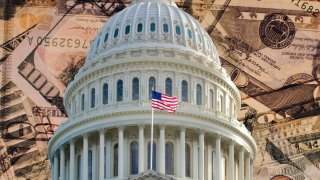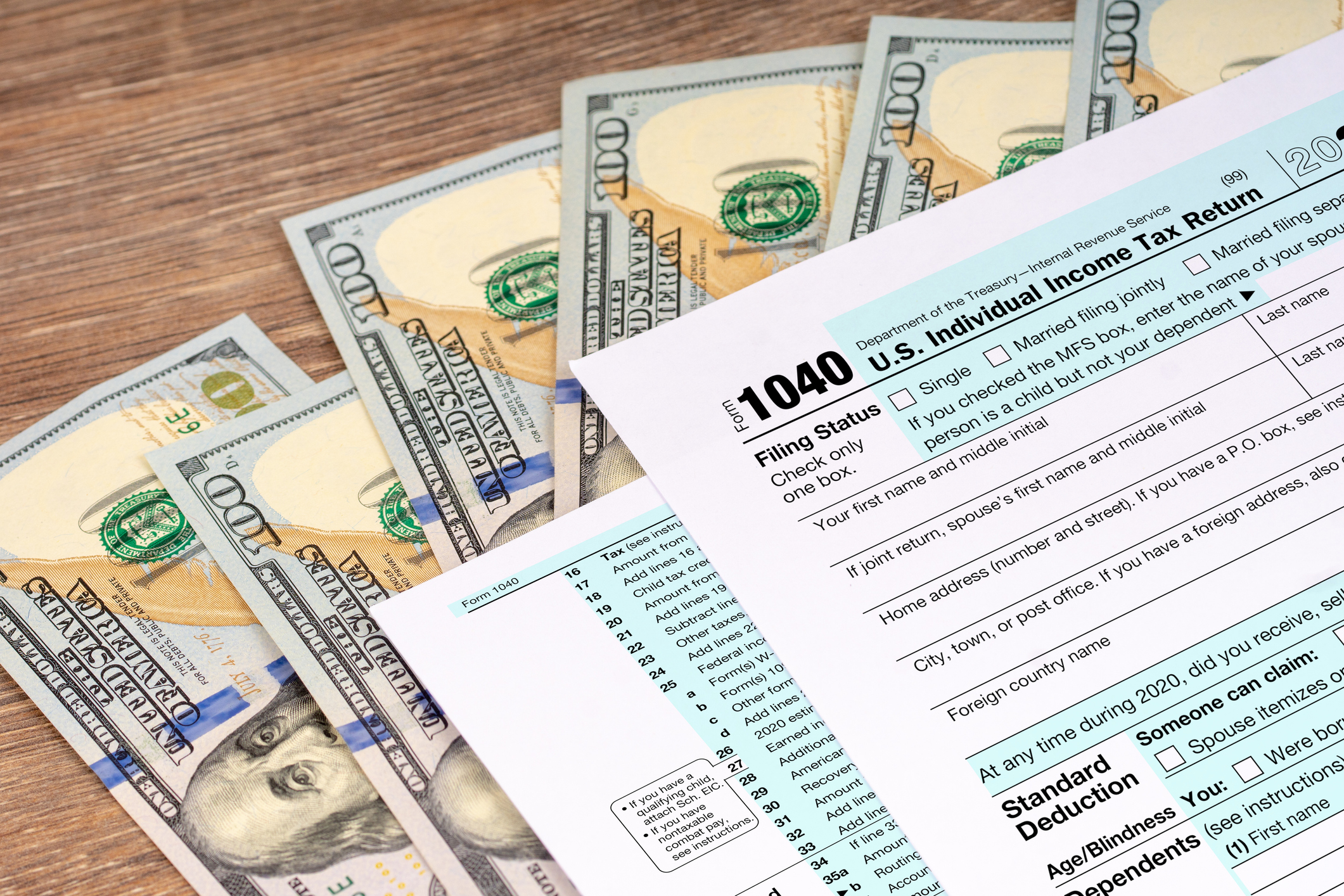
Nearly four years after Congress voted to pause student loan payments due to the COVID-19 pandemic, repayments with interest resumed in September, which means borrowers might notice some changes in their taxes this 2023 season.
As part of a debt ceiling deal signed in Congress in June, lawmakers voted to resume federal student loan repayments for millions of Americans beginning in September, with the first post-pause payments due in October.
According to the Department of Education, the current interest rate for an undergrad federal student loan is 5.5%, while the interest rate for graduate student loans was set at 7.05%, the highest they've been in over a decade.
The average student loan debt in the U.S. currently sits at around $37,718. With a 5.5% interest rate, this means the average American will end up paying about $11,402.73 in interest in 10 years.
Get New England news, weather forecasts and entertainment stories to your inbox. Sign up for NECN newsletters.
Ahead of the start of the 2023 tax season, here's what the restart of student loan repayments means for your tax bill:
Can I claim a student loan interest deduction?
Because the Department of Education allowed most people with federal student loans to pause their monthly payments without accruing interest in 2020, borrowers who took advantage of the pause will only be able to deduct what they paid in 2023.
For the 2023 tax season, this means qualifying borrowers will be able to claim a tax deduction of up to $2,500 a year in interest paid on eligible private or federal education debt.
What are the income limits to claim a student loan deduction?
According to the IRS, the deduction starts to phase out for individuals with a modified adjusted gross income above $75,000, and it ends for taxpayers with a MAGI of $90,000 or more. For married couples filing jointly, the phaseout begins at a MAGI of $155,000 and ends at $185,000 or more.
Can employer aid reduce deduction eligibility?
Yes, if your employer made payments on your student loans as part of a work benefit, your eligibility for the deduction may also be reduced, according to the IRS.
Include form 1098-E in your taxes
When filing your taxes, include form 1098-E with your tax return if you paid $600 or more in interest payments. If you do not have the form handy, you can request it from your servicer.
Will I pay more in taxes if my student loans are forgiven?
A provision in the American Rescue Plan exempts student loans that are forgiven after Dec. 31, 2020, and before Jan. 1, 2026, from paying any federal taxes. And most states do as well.
However, if you live in Indiana, Mississippi, North Carolina, and Wisconsin, you may still need to pay taxes on forgiven debt.
So if you live in a state that does not conform to the federal exceptions on student loan forgiveness, you may need to include form 1099-C with your taxes.



